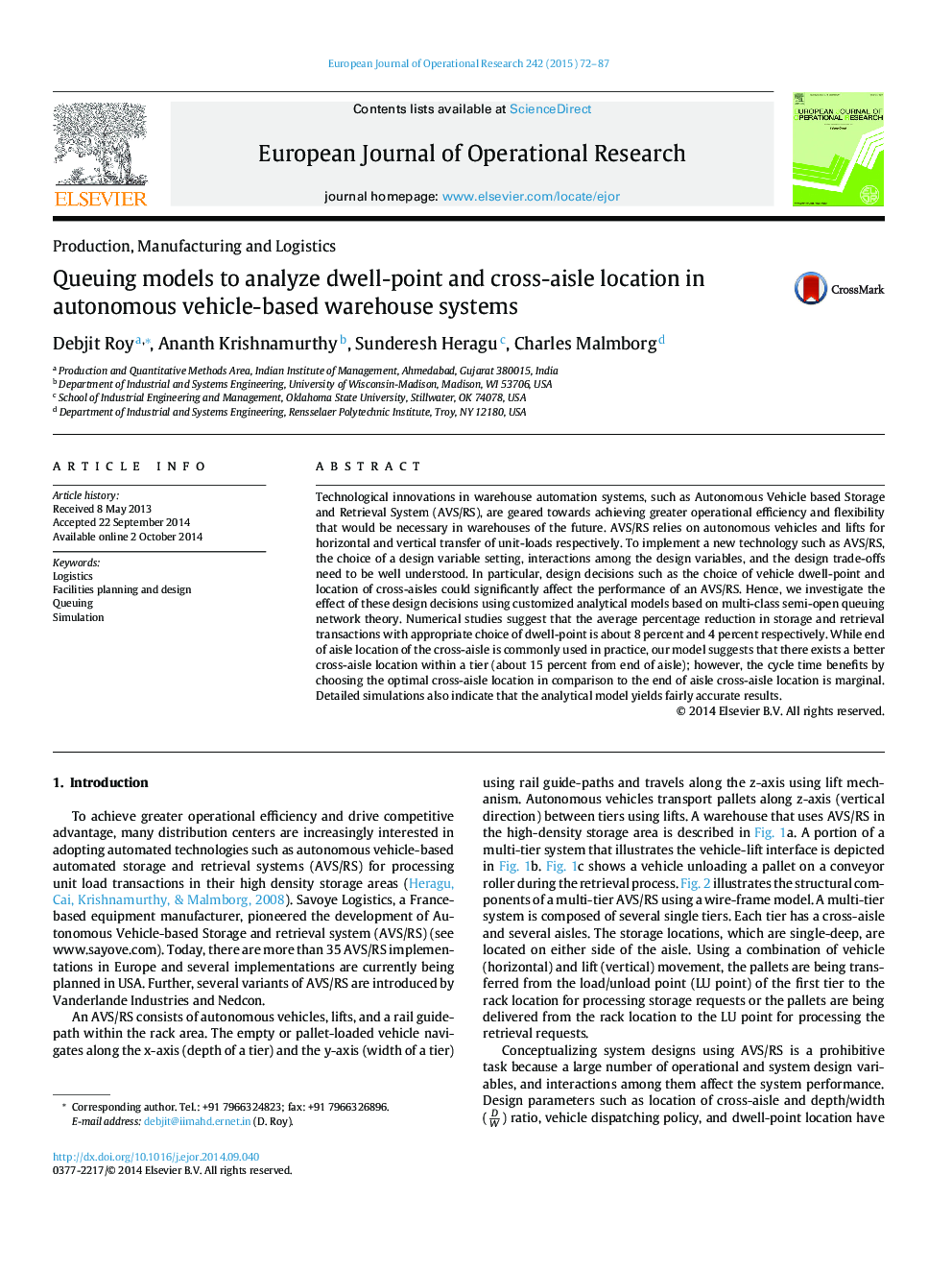| Article ID | Journal | Published Year | Pages | File Type |
|---|---|---|---|---|
| 476581 | European Journal of Operational Research | 2015 | 16 Pages |
•Developed customized queuing models for an AVS/RS to analyze two design policies.•Developed probabilistic travel-time expressions by partitioning a tier into regions.•Considered transaction waiting times in addition to the vehicle travel times.•LU dwell-point policy improves the cycle times by as much as 16%.•Cross-aisle location closer to end of aisle is a better location choice.
Technological innovations in warehouse automation systems, such as Autonomous Vehicle based Storage and Retrieval System (AVS/RS), are geared towards achieving greater operational efficiency and flexibility that would be necessary in warehouses of the future. AVS/RS relies on autonomous vehicles and lifts for horizontal and vertical transfer of unit-loads respectively. To implement a new technology such as AVS/RS, the choice of a design variable setting, interactions among the design variables, and the design trade-offs need to be well understood. In particular, design decisions such as the choice of vehicle dwell-point and location of cross-aisles could significantly affect the performance of an AVS/RS. Hence, we investigate the effect of these design decisions using customized analytical models based on multi-class semi-open queuing network theory. Numerical studies suggest that the average percentage reduction in storage and retrieval transactions with appropriate choice of dwell-point is about 8 percent and 4 percent respectively. While end of aisle location of the cross-aisle is commonly used in practice, our model suggests that there exists a better cross-aisle location within a tier (about 15 percent from end of aisle); however, the cycle time benefits by choosing the optimal cross-aisle location in comparison to the end of aisle cross-aisle location is marginal. Detailed simulations also indicate that the analytical model yields fairly accurate results.
